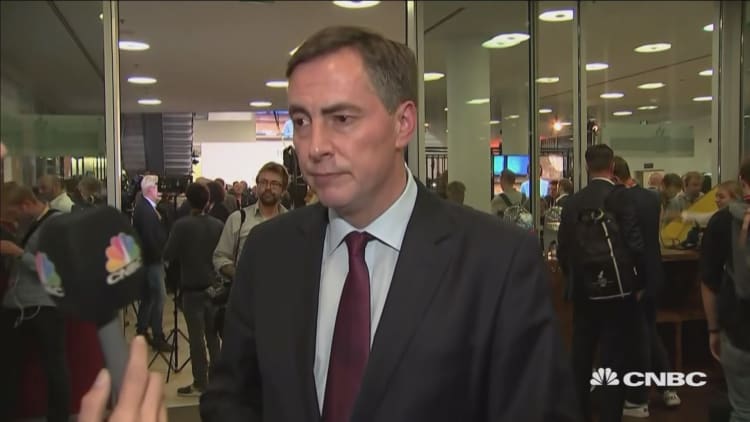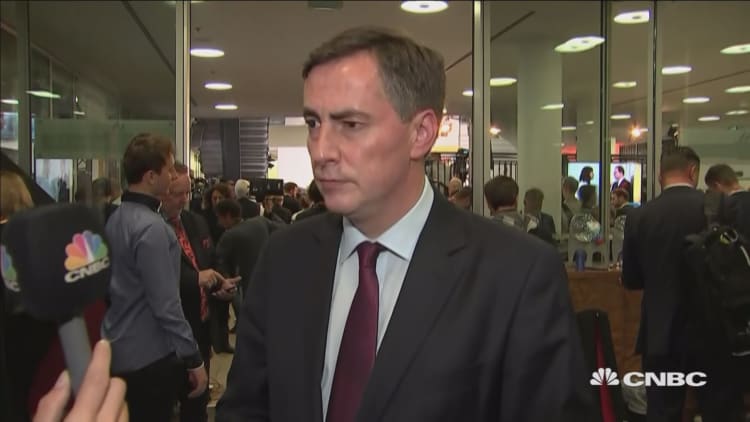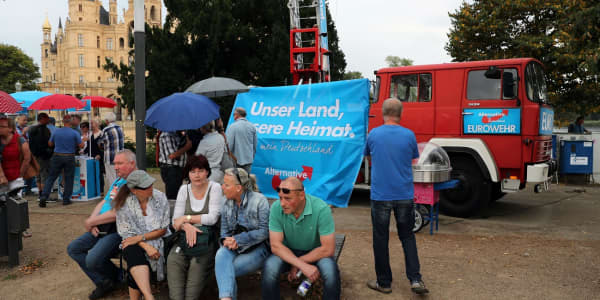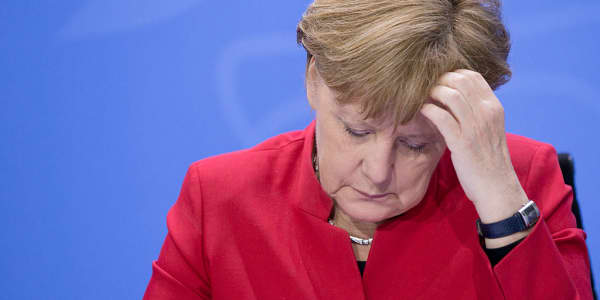
Angela Merkel's Christian Democratic Union (CDU) will need to bring clarity to an immigration policy which likely helped the far-right Alternative for Germany (AfD) pull off a surprise entry into parliament, a senior CDU official told CNBC.
"We have to take the concerns of AfD voters very seriously," said David McAllister, a CDU member and chair of the European Parliament Foreign Affairs Committee.
"I'm not interested in the populist AfD politicians who ran a dreadful campaign based on racism and extreme nationalism. But I'm concerned about hundreds of thousands of people who have stopped voting for my party and are now voting for the AfD. "
The AfD stunned the establishment by finishing third and entering parliament for the first time, with 13.5 percent of the vote. Under Germany's mixed-member proportional voting system, that vaults it well beyond the 5 percent threshold needed for seats in parliament.
Chancellor Angela Merkel's CDU and Bavarian allies, the Christian Social Union (CSU), won 32.5 percent of the vote, making them by far the largest parliamentary group, according to an exit poll for the broadcaster ARD, but that is down from 41.5 percent in the last election in 2013 and lower than recent polling. Their closest rivals, the center-left Social Democrats (SPD), slumped to 20.0 percent, a new post-war low.
Merkel now needs to work to form a coalition reportedly without the SPD, a process that will likely involve protracted negotiations.
"I find it deeply regrettable that for the first time since 1949 a far-right wing populist party is entering the German Bundestag," McAllister said.
But he said that for the CDU, the work to convince voters that it has an immigration policy that limits new arrivals lies ahead.

"And we have to make sure. And we have to make clear that those people who are coming to Germany as asylum seekers and refugees who need our protection and shelter that they can stay in Germany," McAllister said.
"But those who are coming for economic reasons will have to go back to the countries they came from. We can't accept this mass migration over years and years, this is too much for Germany."





